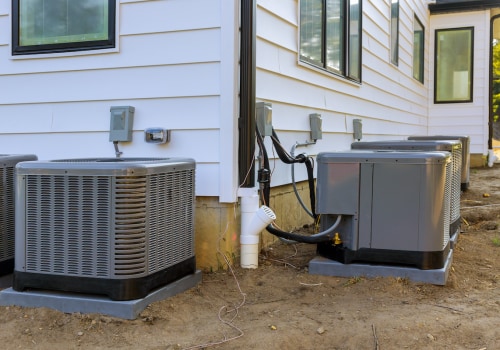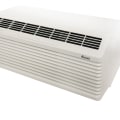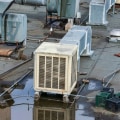Finding the Best Air Filter Measurements For Your AC Before Getting HVAC Replacement Services in Palm Beach County FL
Before arranging for HVAC replacement services in Palm Beach County, Florida, determining your AC's air filter size is crucial. Here's how you go about it - take out your present filter, then run a measure on its length, width, and depth. Why is this important, you might ask? Well, getting your filter size right can help trap particles more effectively, cut down on energy expenses, reduce the need for frequent maintenance, and prevent health hazards from built-up particles.
But be aware, that mistakes are easy to make. Some people pay attention only to the length and width, completely ignoring the depth of the filter. Others might get confused by the inaccurate information often found on filters. Steering clear of these pitfalls can significantly boost your system's efficiency. Plus, you'll arm yourself with useful knowledge for dealing with HVAC issues in the future.
Key Takeaways
- Accurate measurements of your AC filter, including length, width, thickness, ensure optimal system functioning.
- Utilizing a filter of incorrect size might escalate your energy costs, necessitating frequent filter replacements.
- Filter material, along with efficiency ratings (MERV), significantly impact system effectiveness.
- Ignoring filter thickness or falling for misleading measurements on filters are common sizing errors.
- In Palm Beach County FL, while looking for HVAC replacement services, evaluate factors like customer satisfaction, pricing transparency, company reputation.
Understanding HVAC Air Filter Sizes
HVAC air filter sizes, integral to indoor air quality and system efficiency, depend on many factors. Mainly, we should consider filter materials and efficiency ratings.
Materials used in filters significantly impact HVAC system performance. Common ones include fiberglass, polyester, and pleated fabric. Fiberglass filters, typically the most cost-effective, might not efficiently trap small particles. However, polyester or pleated fabric filters prove successful in capturing such particles, thus boosting air quality in homes or offices.
Efficiency ratings, represented by Minimum Efficiency Reporting Value (MERV), reveal how well this part of your equipment can clear particles from the air. These numbers vary from 1 to 20, with higher numbers indicating better efficiency. Residential HVAC systems often employ filters with MERV ratings between 8 and 13. But beware, high-rated filters could make your system work excessively, potentially leading to more energy consumption and shortened system life.
Grasping these key points proves vital when choosing an HVAC air filter. Optimal filter size, material selection, and efficiency rating can enhance system performance, upgrade indoor air quality, and possibly extend your HVAC system's life.
Importance of Correct Filter Measurements
Optimal HVAC system performance relies heavily on precise air filter measurements. If your filter doesn't fit well, system inefficiency, heightened energy expenses, and a shortened HVAC unit lifespan may result, in adversely impacting filter longevity.
Understanding this vital aspect reveals that improperly sized filters won't seal correctly. Consequently, unfiltered air bypasses the filter, circulating within your residence. Accumulated dust, allergens, and other airborne particles can then pose potential health risks to inhabitants.
Filters not fitting well may also fail to capture and hold particles effectively compared to correctly measured ones. Such inefficiency can lead to filter clogs at a faster rate, necessitating more frequent changes, resulting in escalated maintenance costs.
Steps to Measure Your AC Filter
Recognizing the significance of exact filter measurements, it's essential to learn the right method to measure your AC filter for the best performance. This task requires a few uncomplicated steps coupled with the correct tools for measurement.
Start by removing the current AC filter to get an accurate size. Find the filter housing, gently pull out the filter, make sure it stays intact for precise measurements. After removal, measure the filter's length, width, and thickness with a trustworthy measuring tool like a tape measure or ruler.
Filter materials can be different, affecting their dimensions, so this aspect shouldn't be neglected. Traditional filters made of fiberglass and pleated materials usually have a standard thickness of 1 inch, while filters designed for high efficiency can be 4 to 5 inches thick.
Note down the dimensions in order: length, width, then thickness. A filter that is 20 inches long, 25 inches wide, and 1 inch thick, for example, would be referred to as a 20x25x1 filter. Keeping these measurements precise is essential for your AC system's efficiency and to evade unnecessary HVAC replacement services.
Common Mistakes in Filter Sizing
Measuring an air filter may seem simple, but several pitfalls can cause inaccurate sizing that compromises the performance of your AC system. Common mistakes include misunderstandings about the consequences of using wrong filter sizes. Misunderstandings like these can decrease air quality while speeding up wear on your HVAC system.
Challenges with the size of the filter also contribute to errors in filter sizing. Measurements listed on filters may not represent the exact dimensions, which can confuse inexperienced homeowners. Such confusion often leads to the purchase of ill-fitting filters, which fail to perform effectively, potentially harming your AC system.
Ignoring the filter's thickness can also lead to subpar fit and performance. Homeowners often concentrate on length and width, neglecting the significance of filter depth. Overlooking this aspect can cause air to bypass the filter, compromising air quality while accelerating wear on the HVAC system.
Steering clear of these mistakes when selecting the size of your air filter can prevent unnecessary expenses. It also ensures your HVAC system operates at optimal efficiency, delivering clean, high-quality air.
Choosing HVAC Replacement Services
Correct air filter size selection is one step in your HVAC system's performance maintenance. Following this, you need to identify a dependable HVAC replacement service. Numerous options exist in Palm Beach County, FL, but your focus should be on customer satisfaction, quality workmanship, comprehensive industry knowledge.
Potential services should undergo evaluation based on their reputation, certifications, range of services offered. Reviews from past customers and their ratings can offer insight. Versatile service offering replacements, installations, repairs, maintenance brings continuity and system familiarity.
Pricing is another integral aspect of your decision-making process. Prices for HVAC services differ, typically reflecting their expertise level and work quality. Choose services that offer transparent pricing without hidden charges. Although cost shouldn't be your sole determining factor, consider one that is affordable but still offers quality service.
Frequently Asked Questions
How Often Should I Replace the Air Filter in My HVAC System?
In general, replacement should occur every one to three months. Different factors, such as the type of material or specific installation methods, may alter this standard timeline. By replacing them frequently, optimal performance of your system and high-quality air are ensured.
Are There Any Brands of Air Filters That Are Best for My AC System?
Selecting an optimal air filter brand for your HVAC unit largely hinges on filter lifespan and compatibility with your specific unit. Consulting professionals in HVAC systems can ensure peak performance.
Can Incorrect Air Filter Size Affect My Energy Costs?
Indeed, energy costs can be influenced by an incorrectly sized air filter. Efficiency drops when filter dimensions aren't accurately matched, forcing your system to exert extra effort. Higher energy usage often results from improper installations, such as a mismatched filter size.
What Are the Signs That My AC Filter Needs to Be Changed?
Key signs pointing towards a necessary change in your AC filter involve diminished airflow, heightened energy bills, and irregular cooling performance. Such symptoms suggest your filter has outlived its usefulness, warranting immediate replacement.
Is There a Difference Between a Residential and Commercial HVAC Air Filter?
Indeed, differences exist between residential and commercial HVAC air filters. Commercial filters often need higher efficiency due to heavier use and diverse air quality requirements. Different filtration materials are also common in commercial settings.
Learn more about HVAC Care from one of our HVAC solutions branches…
Filterbuy HVAC Solutions - West Palm Beach FL
1655 Palm Beach Lakes Blvd., Ste 1005 West Palm Beach, FL 33401
(561) 448-3760
https://maps.app.goo.gl/VarpgNZnxuPQuW8A7











